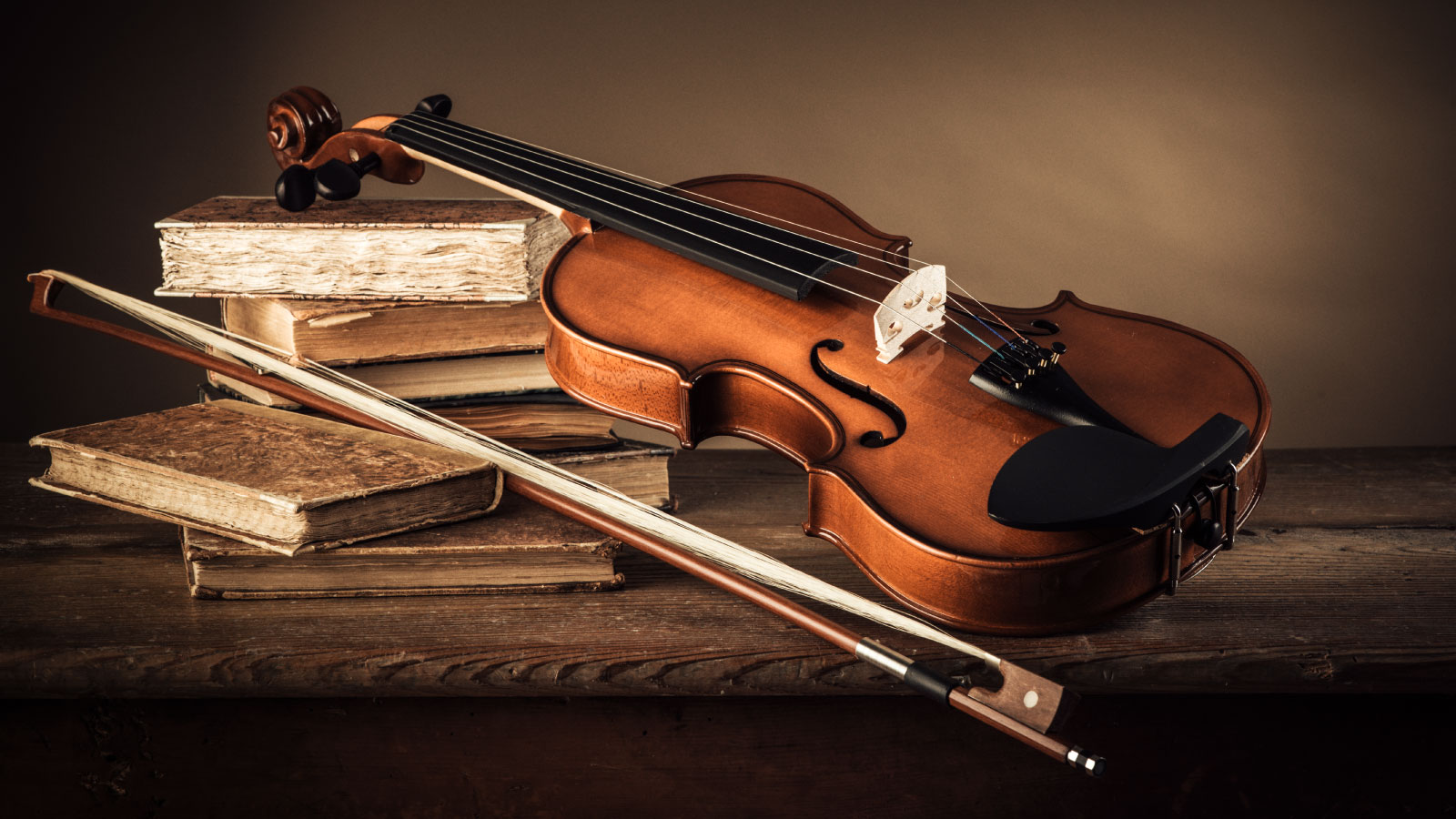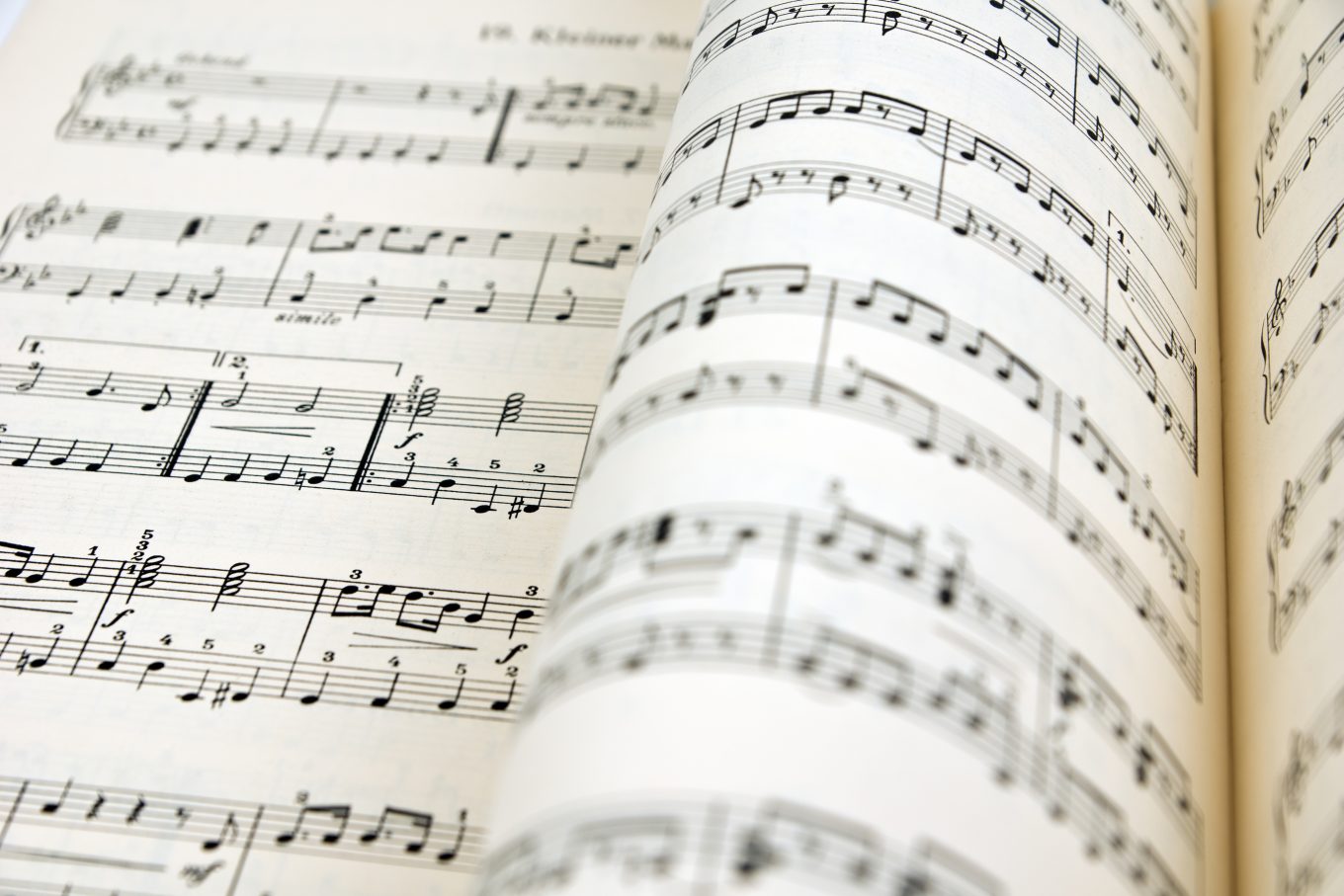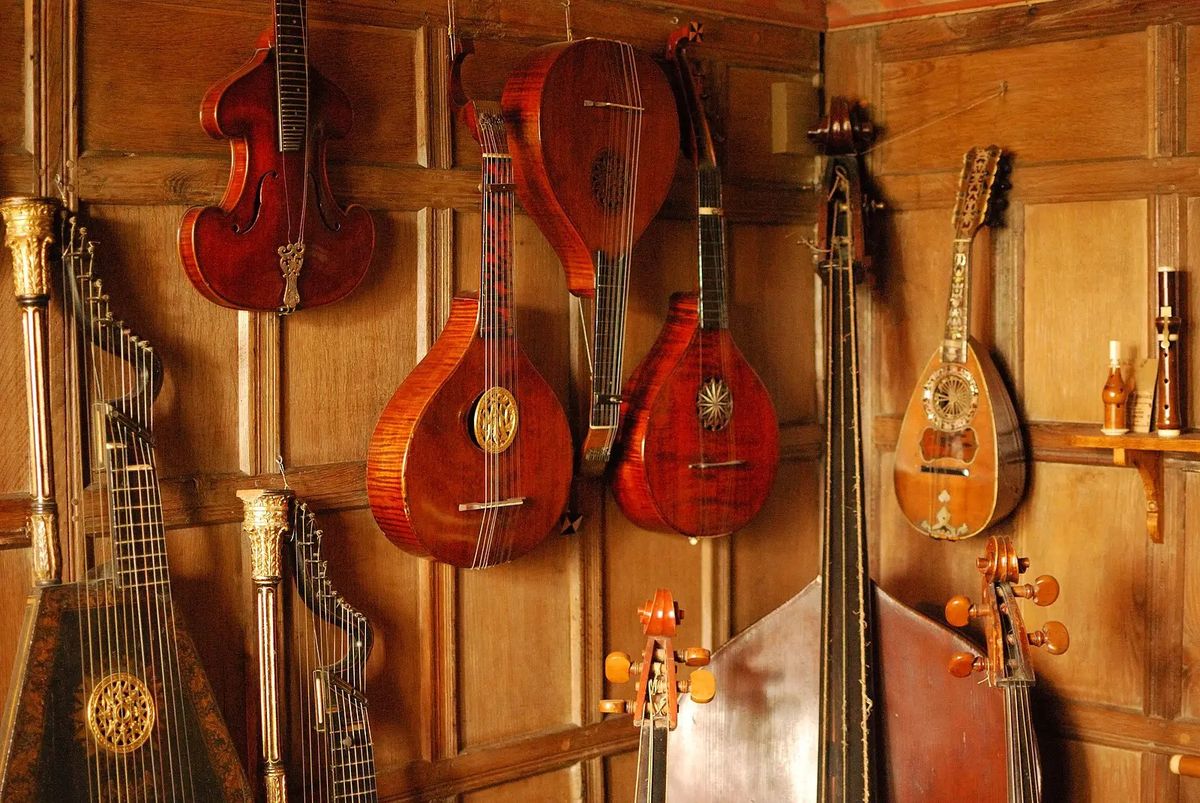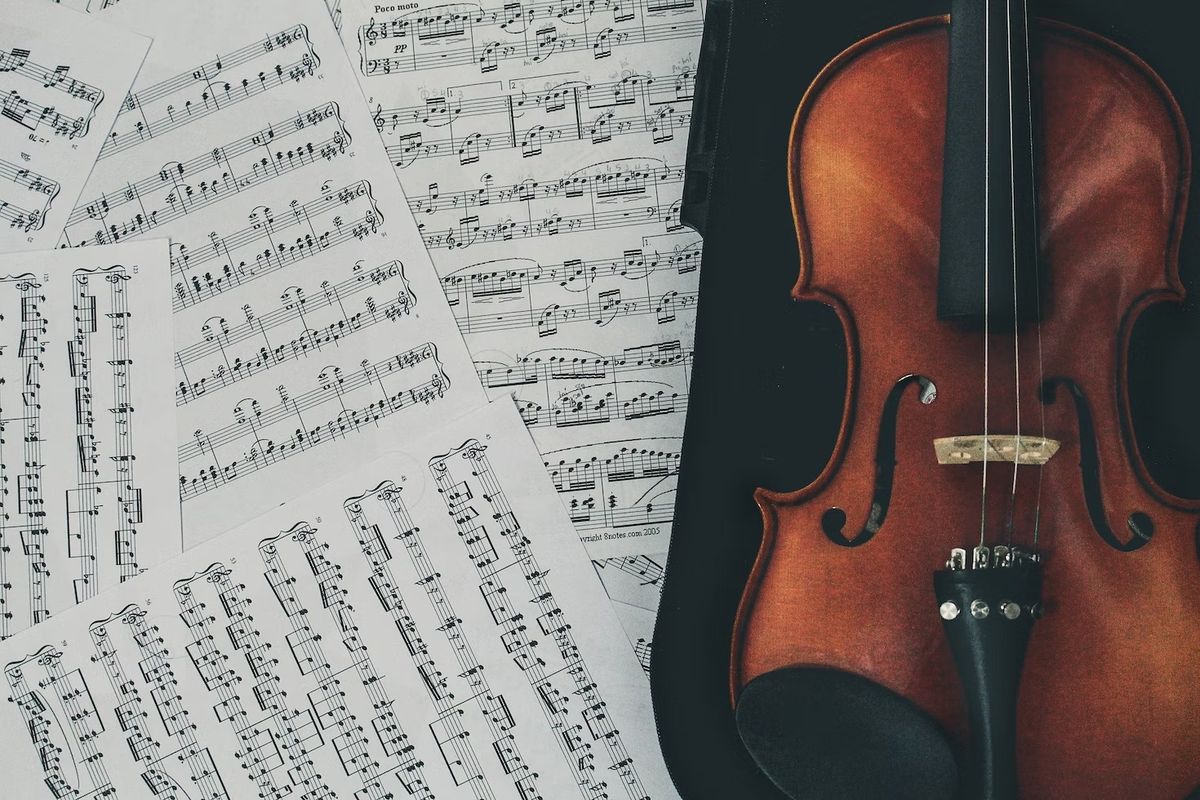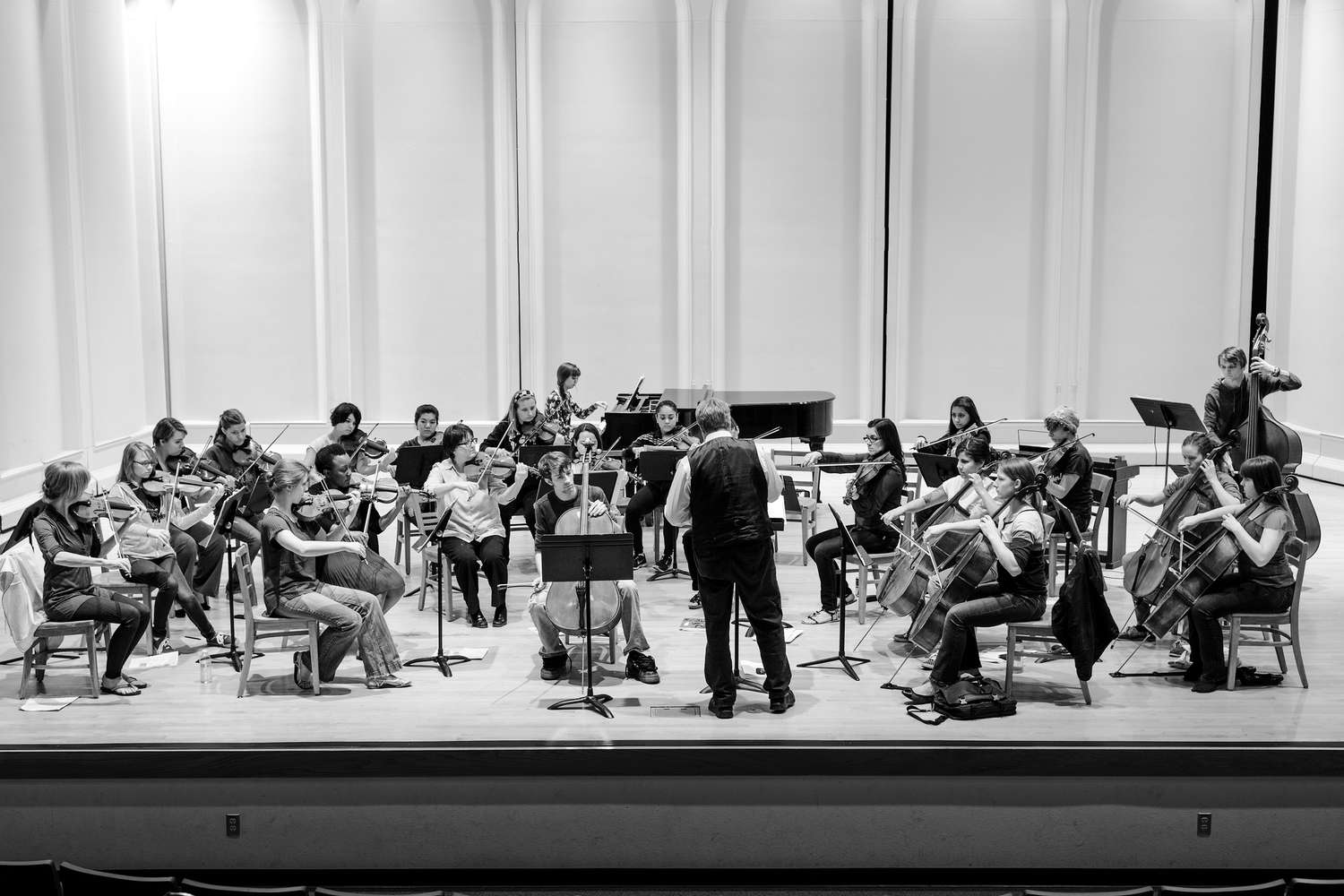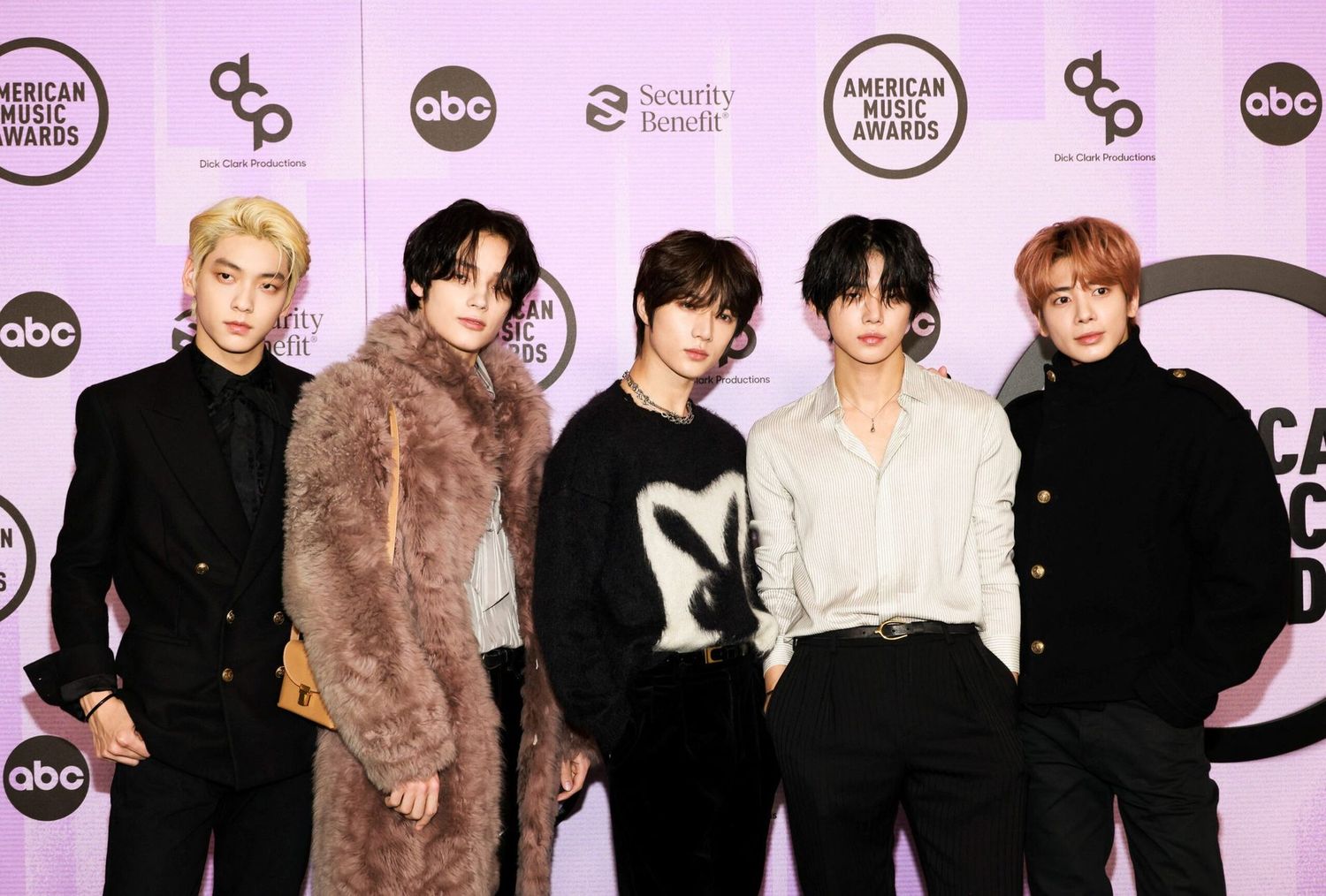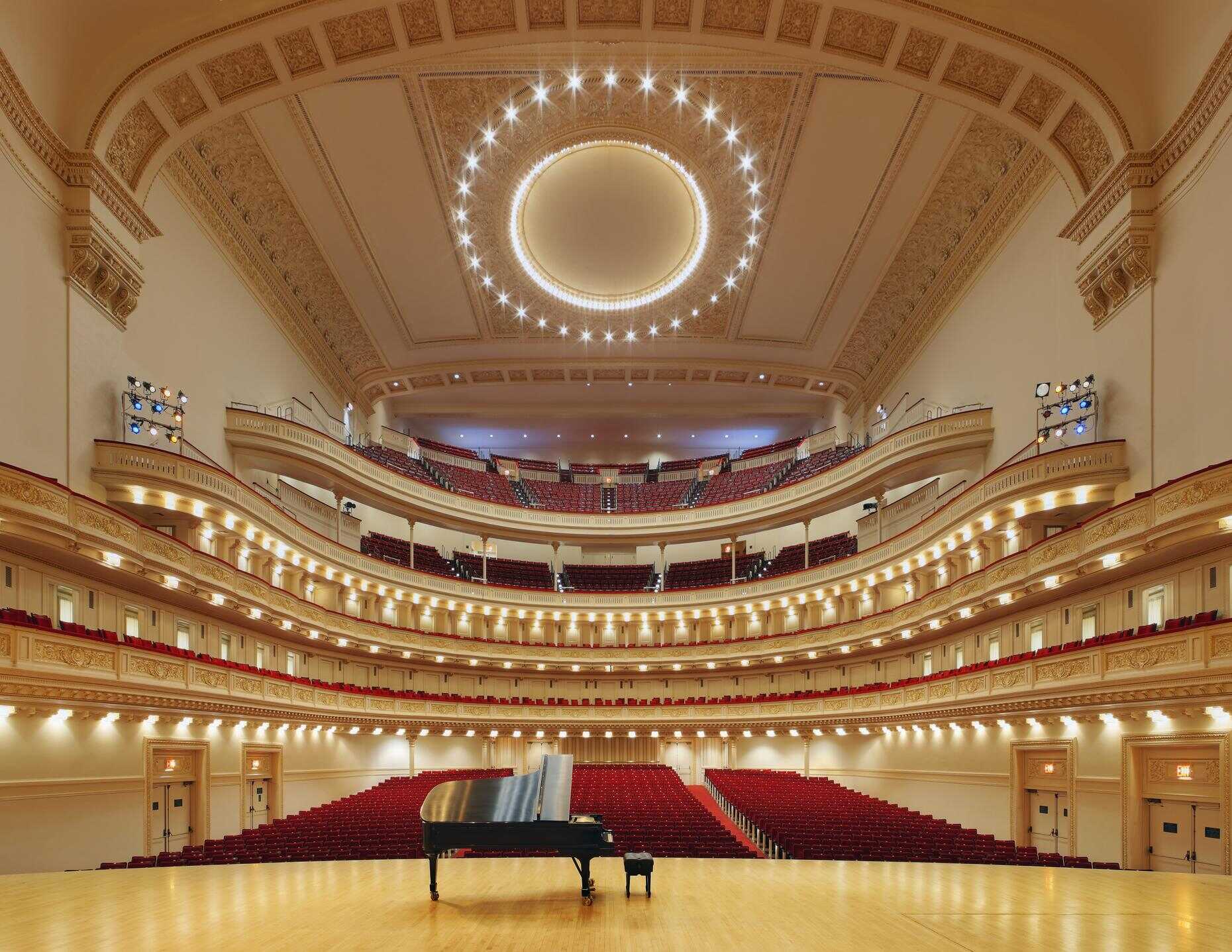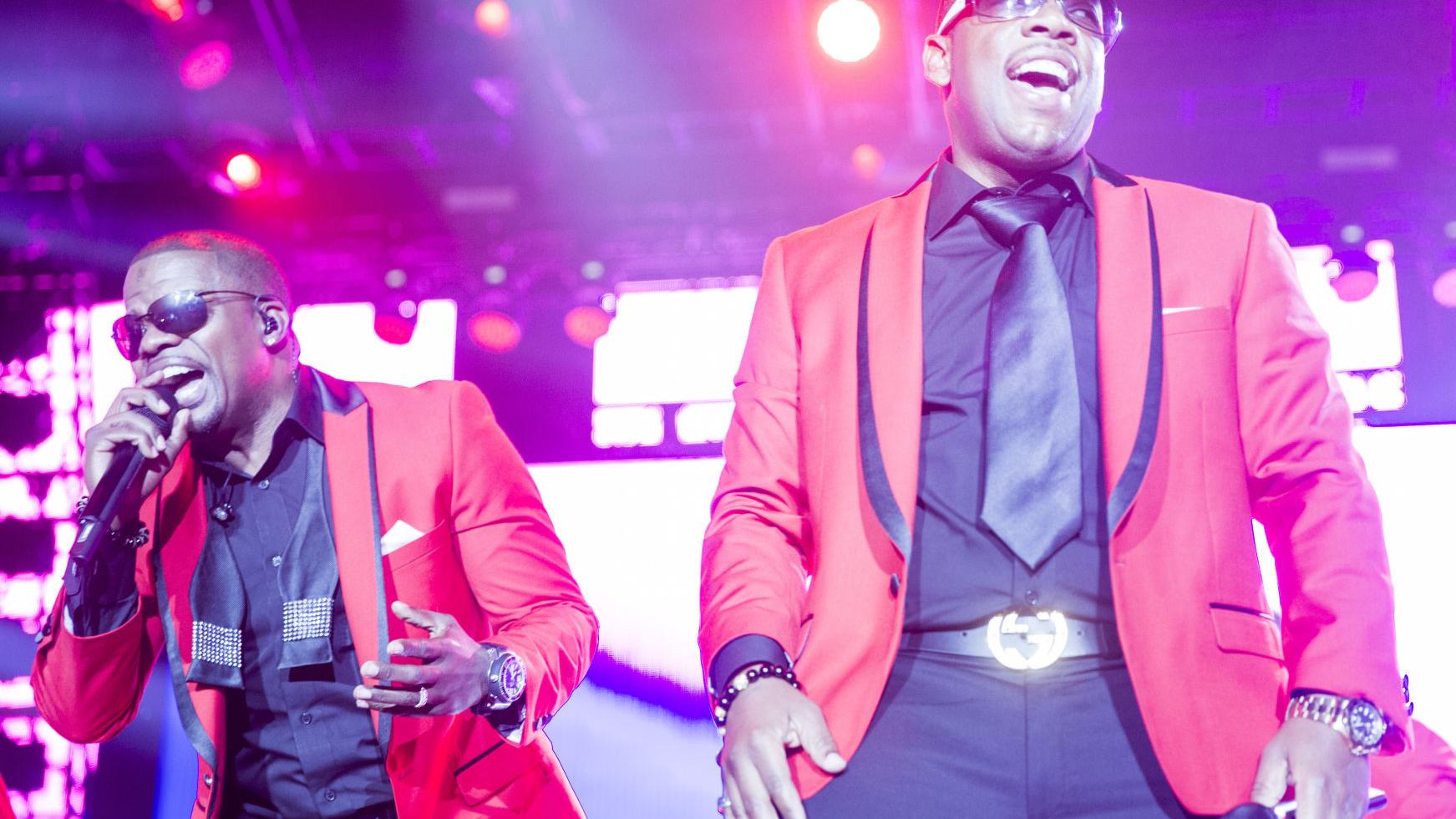Home>Genres>Classical>What To Wear To A Classical Music Concert
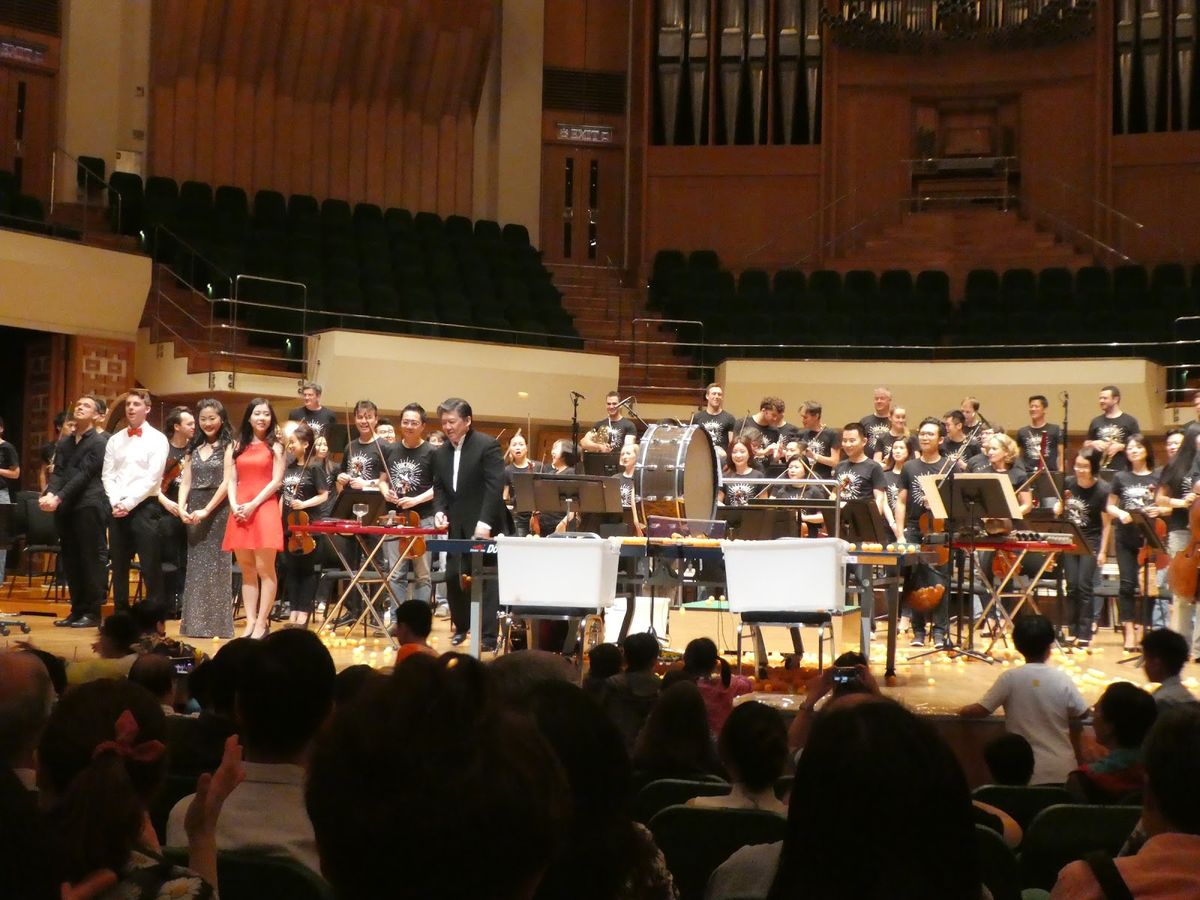

Classical
What To Wear To A Classical Music Concert
Modified: January 22, 2024
Discover the perfect attire for a classical music concert. Dress elegantly with our guide on what to wear to a classical event.
(Many of the links in this article redirect to a specific reviewed product. Your purchase of these products through affiliate links helps to generate commission for AudioLover.com, at no extra cost. Learn more)
Table of Contents
- Introduction
- Understanding the Dress Code for Classical Music Concerts
- Appropriate Attire for Men
- Appropriate Attire for Women
- Choosing the Right Shoes
- Accessorizing for a Classical Music Concert
- Dressing for Different Types of Classical Music Concerts
- Etiquette Tips for Dressing at a Classical Music Concert
- Conclusion
Introduction
Attending a classical music concert is not only an opportunity to indulge in the rich and captivating sounds of timeless melodies, but it is also a chance to immerse oneself in the elegance and sophistication of the classical music culture. As you make your way to the concert hall, one of the questions that often arises is, “What should I wear?”
While there is no strict dress code for classical music concerts, it is important to dress appropriately to show respect for the performers and the art form itself. Your attire can also contribute to the overall ambiance of the event, adding to the experience for both yourself and fellow concertgoers.
Whether you are a seasoned concert attendee or it is your first time attending, this article will guide you on what to wear to a classical music concert, offering tips and suggestions to help you make the right fashion choices for the occasion. From understanding the dress code to accessorizing appropriately, we will explore how to dress to impress while still feeling comfortable and confident.
So, whether you have tickets to a symphony performance, an opera, or a chamber music concert, let’s dive into the world of classical music fashion and ensure that you are dressed to perfection for your next outing to a classical music concert.
Understanding the Dress Code for Classical Music Concerts
While there may not be a strict dress code for classical music concerts, it is important to understand the general expectations when it comes to attire. Classical music has long been associated with elegance, refinement, and cultural sophistication, and dressing accordingly can enhance your overall concert experience.
It is typically advisable to opt for more formal attire when attending a classical music concert, especially for evening performances or those held in prestigious venues. This means avoiding overly casual clothing such as jeans, t-shirts, or sneakers, and instead opting for more polished and sophisticated outfits.
However, it’s important to note that the dress code can vary depending on the venue, the type of performance, and even the region. While some concerts may require more formal attire, others may have a relaxed dress code, allowing for a slightly more casual approach.
To get a better understanding of the expected dress code for a specific concert, it is always a good idea to check the information provided by the concert organizers or the venue itself. This can usually be found on the concert’s website or by contacting the box office directly. Their guidance will give you a clear idea of the level of formality expected and help you make appropriate clothing choices.
Remember, dressing appropriately for a classical music concert is not about conforming to strict rules, but rather about showing respect for the art form and the performers. It is also an opportunity to express your own personal style in a sophisticated and tasteful manner.
In the next sections, we will explore specific guidelines for both men and women to help you navigate the intricacies of dressing for a classical music concert. From formal wear to appropriate accessories, we will ensure that you look and feel your best while enjoying the harmonious melodies and captivating performances that await you.
Appropriate Attire for Men
When it comes to choosing the appropriate attire for men attending a classical music concert, the key is to aim for a polished and refined look. Here are some guidelines to help you dress to impress:
- Suit up: Opting for a well-tailored suit is a classic choice for a formal concert. A dark-colored suit, such as navy or charcoal gray, is a safe and sophisticated choice. Pair it with a crisp, button-down dress shirt.
- Choose the right shirt: A clean and pressed dress shirt is essential for a polished appearance. Stick to classic colors such as white or light blue. Avoid patterned or vibrant-colored shirts that may distract from the concert atmosphere.
- Tie it together: A tie adds a touch of elegance and completes the formal look. Opt for a solid or subtly patterned tie that complements your outfit. A bow tie can also be a stylish alternative for a more eclectic flair.
- Dress shoes: Pair your suit with a polished pair of dress shoes. Opt for classic options such as oxford or derby shoes in black or brown. Ensure that they are clean and well-maintained.
- Consider the season: If attending a concert during the warmer months, you may opt for a lighter suit fabric such as linen or a lightweight wool blend to keep you cool and comfortable while maintaining a refined look.
- Accessories: Pay attention to the details. Add a pocket square to your suit jacket for a touch of sophistication. Keep accessories minimal and tasteful, such as a classic wristwatch, cufflinks, or a tie clip.
Remember, the goal is to strike a balance between looking stylish and feeling comfortable. If you prefer not to wear a full suit, you can choose tailored trousers paired with a blazer or sports jacket. Just ensure that your overall attire maintains a level of formality appropriate for the occasion.
By following these guidelines, you will be sure to impress with your sharp and dapper ensemble, making a statement of refined taste as you enjoy the enchanting melodies of the classical music concert.
Appropriate Attire for Women
When it comes to choosing the appropriate attire for women attending a classical music concert, there is a wide range of stylish options to consider. Follow these guidelines to create a sophisticated and elegant look:
- Classic dress: Opt for a well-fitted dress that falls to an appropriate length, preferably around knee-length or slightly below. Choose a style that flatters your figure and complements the formality of the event. Classic colors such as black, navy, or deep jewel tones are timeless choices.
- Skirt and blouse: If you prefer not to wear a dress, a skirt and blouse combination is a fantastic alternative. Pair a knee-length skirt in a classic style with a blouse that is both chic and tasteful. Avoid overly revealing or casual tops.
- Tasteful separates: Another option is to combine tailored trousers or dress pants with a stylish blouse or top. This ensemble can be just as elegant as a dress or skirt while offering comfort and versatility.
- Elevate with a blazer or jacket: To add a touch of sophistication to your outfit, consider layering with a tailored blazer or jacket. This can instantly elevate your look while providing warmth and refinement.
- Choose the right footwear: Opt for closed-toe shoes that are both stylish and comfortable. Pumps, ballet flats, or heeled sandals are all great options. Avoid overly casual or flashy footwear.
- Accessorize tastefully: Enhance your outfit with tasteful accessories such as a delicate necklace, a statement bracelet, or understated earrings. A small clutch or evening bag is a chic choice to carry your essentials.
It’s essential to maintain a level of sophistication while still feeling comfortable in your ensemble. Remember that the focus should be on the music and the concert experience, so avoid wearing anything too distracting or overly casual.
Add a touch of your personal style to your outfit, whether it’s through a statement accessory or a pop of color. Just be sure to strike the right balance to create a refined and elegant look that complements the ambiance of the classical music concert.
By following these guidelines, you will exude confidence and grace as you immerse yourself in the world of classical music, creating a timeless and fashionable impression to match the enchanting melodies.
Choosing the Right Shoes
When attending a classical music concert, choosing the appropriate footwear is just as important as selecting the right attire. Your shoes should complement your outfit while also providing comfort for the duration of the event. Here are some considerations to keep in mind:
- Comfort is key: Classical music concerts typically involve spending a significant amount of time on your feet, so it’s important to choose shoes that are comfortable and supportive. Opt for styles that you can easily wear for an extended period without discomfort.
- Closed-toe elegance: Closed-toe shoes are generally the most appropriate choice for a classical music concert. Pumps, ballet flats, or dressy flats can all be stylish and sophisticated options. They offer a polished look while also providing comfort and support.
- Avoid overly casual styles: While casual shoes like sneakers or flip-flops may be comfortable, they are not suitable for a classical music concert. Opt for footwear that reflects the level of formality of the event and complements your outfit.
- Consider the venue: Take into account the concert venue and the type of seating available. If you will be walking on uneven surfaces or stairs, choose shoes with a stable and slip-resistant sole.
- Heel height: If you prefer to wear heels, choose a moderate heel height that you can comfortably walk and stand in. Avoid extremely high heels that may cause discomfort or difficulty navigating the concert hall.
- Match your outfit: Select shoes that complement your chosen ensemble. Opt for neutral colors like black, nude, or metallics, as they are versatile and can be paired with various outfits. Coordinate the color of your shoes with the overall color scheme of your outfit for a cohesive look.
Remember, while style is important, comfort should never be compromised when selecting footwear for a classical music concert. Find the perfect balance between elegance, comfort, and suitability to ensure a pleasant and enjoyable experience as you indulge in the beautiful melodies.
Accessorizing for a Classical Music Concert
Accessorizing plays a vital role in completing your ensemble for a classical music concert. Thoughtful and tasteful accessories can elevate your look and add a touch of personal style. Here are some tips for accessorizing for a classical music concert:
- Jewelry: Choose understated and elegant jewelry pieces that enhance your outfit without overpowering it. Simple earrings, a delicate necklace, or a dainty bracelet can add a hint of sparkle and sophistication.
- Scarves and shawls: Depending on the season and the formality of the concert, consider adding a scarf or shawl as a stylish accessory. Opt for lightweight, luxurious fabrics such as silk or cashmere for an added touch of elegance. These accessories can also provide warmth in air-conditioned or outdoor venues.
- Handbags: A small clutch or a compact crossbody bag is a practical and chic choice for carrying your essentials. Opt for a classic, sophisticated design that complements your outfit. Avoid large and bulky bags that may be obtrusive or take away from the overall look.
- Hats and headpieces: Depending on the style and formality of the concert, hats and headpieces can add a unique flair to your outfit. Consider a sophisticated fascinator or a stylish wide-brimmed hat for a touch of elegance. Make sure the size and shape of the hat allow for comfortable viewing and sitting arrangements.
- Watches: A classic wristwatch can be a stylish and functional accessory for a classical music concert. Opt for a timepiece with a simple and timeless design that complements your overall look.
- Minimalism is key: While accessories can enhance your outfit, it’s important to maintain a sense of minimalism. Avoid overloading with too many accessories, as this may distract from the overall elegance and sophistication you are trying to achieve. Choose a few key pieces that enhance your look without overpowering it.
Remember that accessorizing should be done with intention and should complement and enhance your overall ensemble. By choosing accessories that are refined, timeless, and in harmony with your outfit, you can create a polished and complete look for your classical music concert attendance.
Dressing for Different Types of Classical Music Concerts
When attending a classical music concert, it’s essential to consider the specific type and nature of the event. Different types of concerts may have varying levels of formality, which can influence your attire choices. Here are some guidelines for dressing for different types of classical music concerts:
- Symphony Orchestra: Symphony orchestra concerts are typically more formal events. A standard rule of thumb is to opt for formal attire, such as a suit for men and a classy dress or elegant separates for women.
- Chamber Music: Chamber music concerts tend to have a more intimate setting. While still formal, these concerts often allow for slightly more relaxed attire. Dressing in smart-casual or semi-formal attire is generally appropriate.
- Opera: Opera performances are often lavish and grand, offering a more theatrical experience. These events often call for more glamorous and formal attire. Consider wearing a formal dress or an elegant evening gown for women and a suit or tuxedo for men.
- Outdoor Concerts: Outdoor concerts, such as those held in parks or amphitheaters, may have a more laid-back atmosphere. Dressing in smart-casual attire is generally acceptable for these events. However, it’s still important to present yourself in a neat and stylish manner.
- Mixed-genre Concerts: Some classical music concerts may incorporate elements of other genres, such as jazz or contemporary music. In such cases, the dress code may vary depending on the specific theme and venue. It’s a good idea to do some research beforehand or seek guidance from the concert organizers to determine the appropriate attire.
Remember that these guidelines are not strict rules, but rather suggestions to help you navigate the dress code for different types of classical music concerts. It’s always a good idea to check the specific information provided by the event organizers or the venue to ensure you dress appropriately for the occasion.
By understanding the nature of the concert and tailoring your attire accordingly, you will feel confident and in tune with the atmosphere of the event, allowing you to fully enjoy the musical experience.
Etiquette Tips for Dressing at a Classical Music Concert
Attending a classical music concert is not only about appreciating the music but also about respecting the performers, fellow concertgoers, and the overall ambiance of the event. Here are some etiquette tips to keep in mind when dressing for a classical music concert:
- Be respectful: Dressing appropriately shows respect for the performers and the art form. It contributes to the overall atmosphere of elegance and sophistication that is often associated with classical music concerts.
- Observe the dress code guidelines: Check the dress code guidelines provided by the concert organizers or the venue. It’s important to adhere to any specific requirements or recommendations they may have to ensure that you are dressed appropriately.
- Avoid distractions: Dress in a way that does not draw unnecessary attention or cause distractions during the performance. Avoid wearing overly casual attire, flashy accessories, or anything that may create noise or discomfort for yourself or those around you.
- Respect the formality: Take into account the formality of the concert and choose your attire accordingly. Formal concerts may require more traditional and formal outfits, while more casual concerts may allow for smart-casual attire.
- Consider the comfort: While dressing appropriately, also make sure that you feel comfortable in your chosen outfit. Ensure that your clothing allows you to sit and move comfortably throughout the duration of the concert.
- Arrive prepared: Be aware that some concert venues may have specific clothing storage policies. It’s a good idea to check if there are any restrictions on coats, bags, or other accessories, and plan accordingly.
- Respect cultural expectations: If attending a classical music concert in a foreign country, take some time to familiarize yourself with the local cultural expectations regarding attire. This ensures that you dress in a manner that is appropriate for the specific cultural context.
Remember, dressing appropriately is not only about adhering to a dress code but also about demonstrating your respect for the performers, fellow audience members, and the overall experience. By following these etiquette tips, you will contribute to a harmonious and enjoyable atmosphere for all attendees.
Conclusion
Attending a classical music concert is a wonderful opportunity to immerse yourself in the beauty and elegance of the classical music world. Dressing appropriately for the occasion not only shows respect for the performers and the art form but also enhances your overall concert experience. By following the tips and guidelines provided in this article, you can ensure that you are dressed to impress while still feeling comfortable and confident.
Understanding the dress code for classical music concerts is important, as it sets the tone for the event. While there may not be strict rules, it is generally advisable to opt for more formal attire, such as suits for men and elegant dresses or separates for women. Choosing the right shoes, accessorizing tastefully, and considering the specific type of concert can further elevate your outfit.
Additionally, it is crucial to keep in mind the etiquette associated with dressing for a classical music concert. Dressing respectfully, adhering to any dress code guidelines provided, and avoiding distractions are key aspects of concert etiquette.
Remember that while dressing appropriately is important, it should not overshadow the primary reason for attending a classical music concert: to enjoy and appreciate the music. Strike a balance between elegance and comfort to ensure that your attire enhances, rather than detracts from, the musical experience.
So, whether you have tickets to a symphony performance, an opera, or a chamber music concert, dress your best, embrace the beauty of classical music, and let the melodies transport you into a world of timeless elegance and enchantment.

